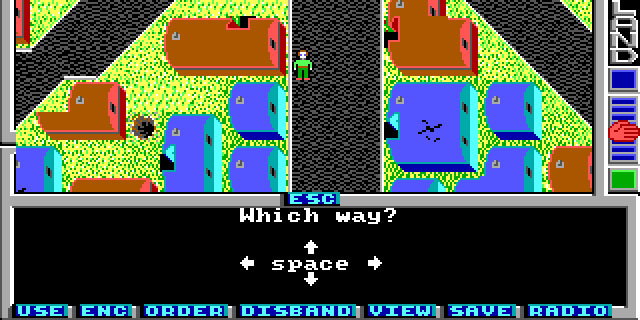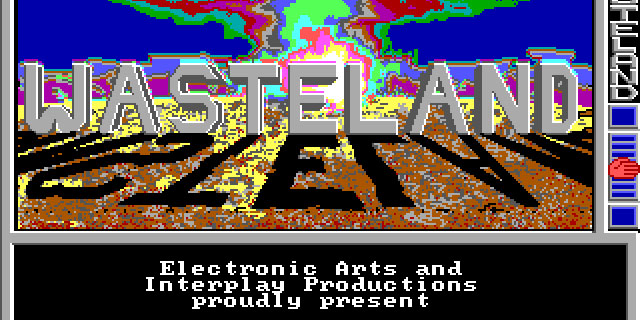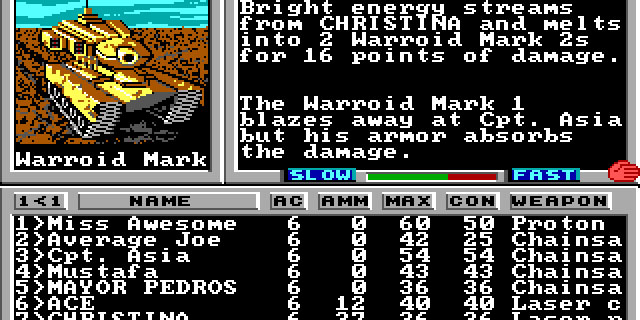
New writer Erik Twice is exploring classic game experiences in this debut of his new column, Flashback.
All my roleplaying experiences have been a wreck. With civilians getting killed on sight and players falling through the same trap door twice, I saw the games shatter and crumble before by eyes, the rules disappearing in a logical puff as our poor understanding of them made our punches more dangerous than the enemy’s machine guns. It just wasn’t a good fit. Surrounded by munchkins and guys a little bit too happy to see their own missions fail I started to seek a solo alternative, something I could happily play alone.
But I didn’t find anything! Everything I played just seemed forced and weak, like a bad novel with math, something made by people who had never got past dice rolls and stats.
And that’s when Wasteland came in.

Made in 1986, Wasteland was a forgotten game. Knowing it just for a brief mention as the progenitor of the Fallout series, it was a hidden gem at best; nobody expected it to come back as a Kickstarter sequel, much less to have the original bundled with it. And so I couldn’t help but play it. Within a devastated post-nuclear American landscape setting, the idea of playing a Wasteland Ranger, a so-called group of law enforcers who aren’t quite told what they ought to do was incredibly appealing to me.
That isn’t an easy task for such an ugly game. Originally made for the ancient Apple II computers, the superior IBM PC port features 16 colors and NPCs that look like dancing blue-shirted dudes. There’s no music, barely any sound and you have to cope with an interface that doesn’t even tell you how much damage your weapons do. It’s harsh, but beyond those issues, there’s a game so humane here that you sometimes wonder if there isn’t a small game master at the other side of the screen, rolling dice without you quite knowing.

Nomads, mutants, falling rocks blocking the entrance path: it’s the kind of stuff you would put in your campaign were you ever to run one, and you can’t help but relate to it at some level. Guns-blazing or asking questions first, Wasteland provides a real sandbox for you to create your own story on your head and make it relatable. The great thing about it? It manages to achieve it without pretentious morality mechanics that don’t really have an effect in the game. In fact, the game achieves this feel without such basic tools as unique characters or even dialogue trees.
Part of its appeal even lies on its own flaws! You can get killed two minutes into the game by going north and getting into a radiated desert, and murder can make you miss plot hooks. And there are very few warnings, the game simply refuses to hold your hand and is content to point out to the endless void of the Wasteland. It’s this freedom, even when it leads to disaster, that makes it so fun.



















